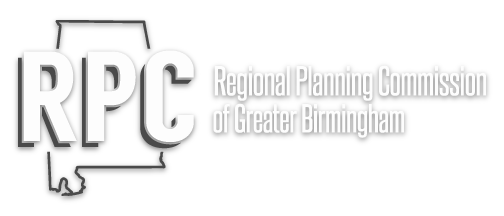Transportation Project Feasibility Studies (APPLE)
Transportation Project Feasibility Studies also known as “Advanced Planning, Programming and Logical Engineering (APPLE)” is a program designed to educate local governments about the project development process, assist them in their decision making process, and provide resources to help develop and advance transportation projects.
Key outcomes of the program are intended to:
Provide information to decision makers about whether or not a project is technically and financially feasible
Assist local governments to clearly define transportation problems
Aid local governments to articulate a project’s Purpose and Need
Help local governments to clearly define a project’s scope
Assist local governments to better understand the potential environmental challenges benefits, and burdens
Aid local governments to better understand the financial costs and impacts of pursuing potential projects
Completed Studies
SR-119 Traffic Operations Study - Shelby County - March 2025
US-78 Traffic Operations Study - Leeds - March 2025
Kelly Creek Road Interchange Study Phases 1 and 2 - Moody/St. Clair County - December 2024
Pedestrian and Traffic Operations Study - Morris - December 2024
Buck Creek Trail Extension Study - Alabaster - May 2024
Pelham/Helena Connector Trail Study - July 2023
Pinchgut Creek Trail Study - Trussville - June 2023
Shades Creek to Eastwood Trail Study - City of Birmingham - May 2023
Embracing Shades Creek - Irondale - April 2023
16th Street Study - City of Birmingham - March 2023
US-411 Intersections - Moody - November 2022
US-280 Chelsea Traffic Study - September 2022
Old Town Helena Pedestrian Improvements - June 2022
Chalkville Road/Chalkville Mountain Road Traffic Study - June 2022
Alabaster Trails and Sidewalks Study - January 2022
SR-70 Pedestrian Improvements Study - Shelby County/Columbiana, September 2021
Chesser Drive Feasibility Study - Chelsea, January 2021
Central Avenue Pedestrian Improvements Study - Homewood, August 2020
Overton Road Corridor Study Phase 1 - Mountain Brook, June 2020
Crestwood Boulevard Study - City of Birmingham, June 2020
Lakeshore Extension Study - ALDOT, April 2020
Birmingham Avenue F Bridge Study, November 2019
Springville US-11/SR-174/CR-9 Intersection Study, September 2019
Calera SR-25 Relocation Study, September 2019
BJCTA Commuter Rail Study, August 2019
Vestavia Hills Traffic Operations, July 2019
Jefferson County Cahaba River Road Study, April 2019
UAB Parkside North South Streets Study, March 2019
Springville SR-174 Traffic Study, December 2018
Vestavia Hills Crosshaven Drive Corridor Study, August 2018
Hollywood Blvd Pedestrian Bridge Study, July 2018
Mountain Brook Traffic Study – Phase 2, August 2018
City of Birmingham Vulcan Greenway Study - March 2018
Vulcan Greenway Conceptual Drawing - Multi-Use Path Option
Gardendale New Road Study, February 2018
City of Birmingham 20th Street Study, January 2018
Shelby County Dunnavant Valley Greenway, October 2017
Shelby County CR-47/CR-39 Intersection Study, September 2017
Helena Schools Intersection Study, August 2017
Mountain Brook Sidewalks Study, August 2017
Acton Road Study, May 2017
UAB Road Diets
UAB Road Diet Concepts, September 2016
UAB Road Diet APPLE Final Report, September 2016
Mountain Brook Bridges Study, July 2016
Mountain Brook Traffic Operations, August 2015
Pelham Trails Study, July 2015
US-411 St. Clair County, February 2015
Cahaba Liberty Trail Feasibility Study, February 2015
Homewood Oxmoor Road Traffic Operations, April 2014
Please browse the FAQ’s below and if you still have any questions contact:
Mike “Kaz” Kaczorowski
mkaczorowski@rpcgb.org
(205) 264-8444
F.A.Q’s about the Program
How does the program work?
The RPCGB will contract with the local government to conduct an assessment. The RPCGB will:
Hire a planning or engineering consultant on behalf of the municipality
Manage the consultant for the municipality, and
Assist the local government through the initial project feasibility process
How does local government support the program?
The local government will assist the program by:
Providing a 20% match to the federal funding that the Birmingham MPO will apply to
Actively participating in the project development process
Who should use the program?
It is designed for use by local governments that do not have the technical capacity to develop and/or manage transportation project development activities. These governments along with projects identified as part of a Building Communities planning effort will be given first priority.
Why would we want to use the program?
It is ultimately meant to help local governments determine whether or not to pursue a project, and whether or not federal funding is appropriate.
How much funding is available?
MPO participation in these projects is capped at $60k total ($48k federal/$12k local).
What do we get for our money?
Advanced Planning Report (APR) i.e. Feasibility Analysis, complete with recommendations
Pre-NEPA screening to include (a) problem identification, (b) purpose and need, and (c) project scope.
*Note: Pre-NEPA work will fold right into NEPA analysis conducted in the preliminary engineering process.

